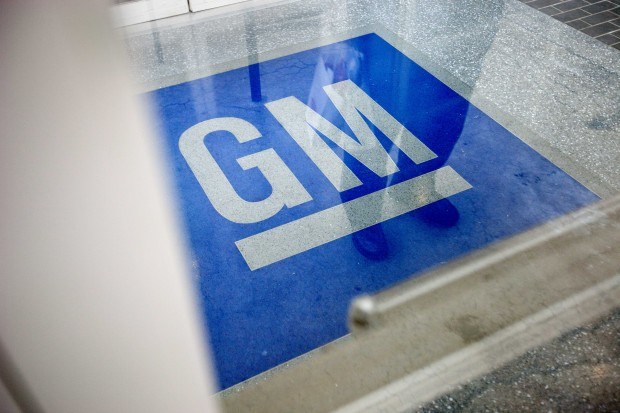Arizona became the first state to join consumers already suing General Motors Co. over faulty ignition switches, claiming the company misled motorists about the safety of its cars and defrauded them of $3 billion.
Arizona Attorney General Tom Horne wants civil penalties of $10,000 for each of the hundreds of thousands of GM vehicles sold in the state in violation of consumer-fraud law. At least nine state attorneys general have combined to probe GM’s conduct, though they haven’t sued yet.
Horne’s complaint is one of more than 150 that have descended on the carmaker since it began serial recalls in February of about 32 million vehicles with faulty switches and other defects. The Arizona complaint follows a suit that Orange County, California, filed on behalf of its residents.
According to Horne, GM marketed itself as a new company committed to quality after the U.S. bailed it out of bankruptcy in 2009. Yet it retained many engineers, lawyers and senior executives, including Chief Executive Officer Mary Barra and General Counsel Michael Millikin, who knew or learned of defects and failed to warn customers, the attorney general said.
“New GM was not born innocent,” he said in the lawsuit. “It manufactured and sold millions of vehicles that were not safe, including hundreds of thousands in Arizona, and it failed to remedy serious defects in millions of older GM-branded vehicles.”
State Groups
Horne took action alone, not as part of a group of states, because “our obligation is to the state of Arizona, so that is what we are concentrating on,” his press secretary, Stephanie Grisham, said in an e-mail today.
GM fell 2 cents to $32.13 in New York trading. The shares have dropped 21 percent this year.
GM’s Volt in July earned the Insurance Institute for Highway Safety’s “Top Safety Pick” rating for good results in crash prevention systems. It was the first time the Arlington, Virginia-based safety group rated electric cars. In April, IIHS said GM’s Chevrolet Equinox and GMC Terrain earned top marks among mid-size sport-utility vehicles in a test designed to simulate of the deadliest types of front-end collisions.
James Cain, a spokesman for Detroit-based GM, said the company would fight the suit.
“It misrepresents the facts, the performance of our vehicles and our work to ensure the safety of our customers,” he said in an e-mail today.
Arizona’s 125-page filing describes defects in 2.6 million older cars recalled for switch fixes, along with faults in GM vehicles affecting brakes, steering, powertrain and more than 20 other parts. The suit reproduces page after page of customer complaints to regulators that the state said “new” GM was aware of.
‘False Representations’
State consumer-fraud law demands safe products and swift disclosure and remedy of defects, according to Horne. Instead, Arizona residents got “false representations and omissions” that lulled them into buying more GM cars that lost value as they were recalled, he said.
“The emergence of the truth about New GM’s abysmal safety record and culture of deceit, and its failure to promptly remedy known defects, has greatly diminished the value of GM branded vehicles sold after the inception of New GM,” he said.
He calculated that prices for 2010 and 2011 Chevrolet Camaros have dropped $2,000 compared with those of similar cars, and the 2009 Pontiac Solstice lost $2,900. Just in September, the 2010 Cadillac STS lost $1,235 and the 2010 Buick LaCrosse price fell $649, he said.
GM Knowledge
Horne’s focus on new GM’s alleged knowledge of defects is a strategy to get around a judge’s ban on making it pay for the errors of its bankrupt predecessor, known as old GM. The law firm the attorney general used, Hagens Berman Sobol Shapiro LLP, made similar allegations last month in two group suits brought by customers in Manhattan federal court.
Because the allegations are similar, Horne may find himself fighting to keep his suit in Arizona. GM is trying to move Orange County’s suit to Manhattan, saying it belongs with the customer class actions.
GM’s faulty ignition switches can be bumped into the off position too easily, disabling power steering and air bags in a crash. So far, 33 deaths and 39 injuries have been linked to the flaw, according to a compensation fund run by lawyer Kenneth Feinberg.
The case is State of Arizona v. General Motors LLC, CV2014-014090, Superior Court of the State of Arizona, County of Maricopa.





















 Premium Slowdown, Inflation Factors to Lead to Higher P/C Combined Ratio: AM Best
Premium Slowdown, Inflation Factors to Lead to Higher P/C Combined Ratio: AM Best  AI Claim Assistant Now Taking Auto Damage Claims Calls at Travelers
AI Claim Assistant Now Taking Auto Damage Claims Calls at Travelers  Reinsurance Program Could Wipe Out Need for Calif. FAIR Plan: Legal Exec
Reinsurance Program Could Wipe Out Need for Calif. FAIR Plan: Legal Exec  Large Scale Cargo Ring Busted in LA, $5M Recovered
Large Scale Cargo Ring Busted in LA, $5M Recovered 






